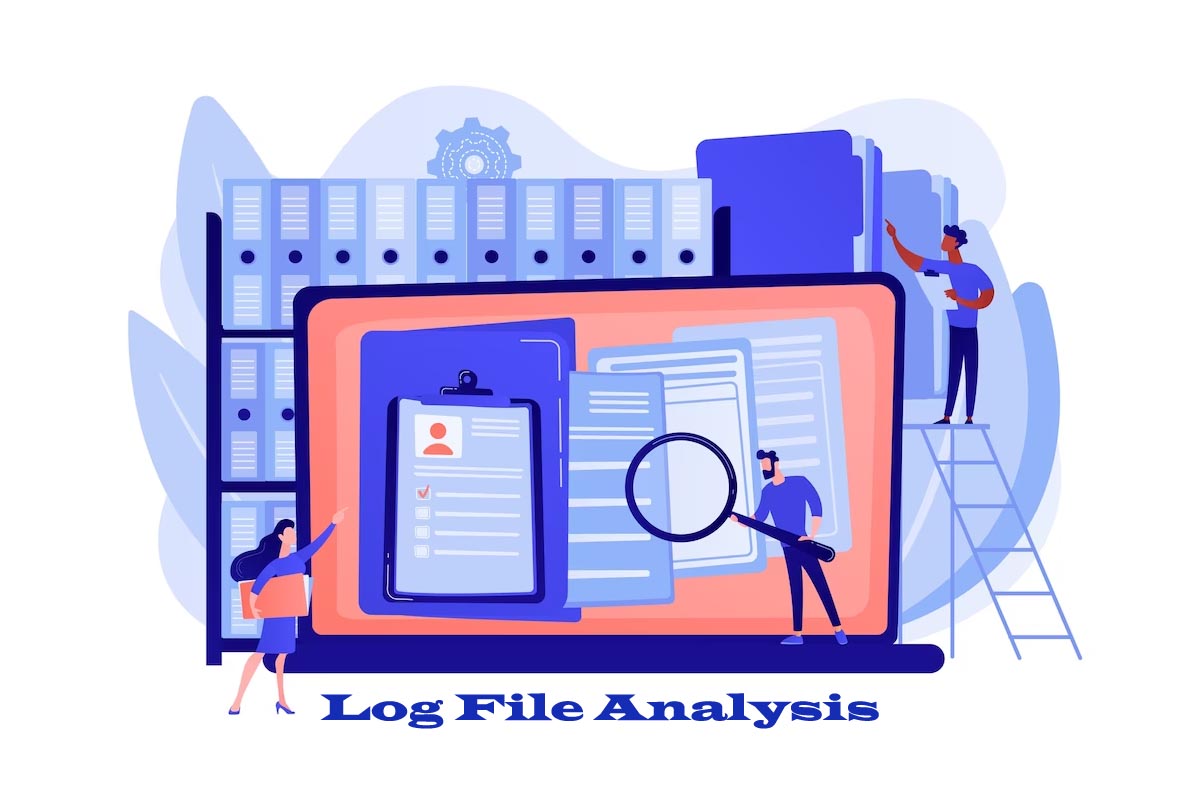Log File Analysis
Log File Analysis uses the logs or records from the webserver to measure the crawling behavior on a search engine and determine possible issues and other opportunities for SEO. They also contain records or activities that can occur within a system or application and provide a detailed consecutive record of activities and interactions.
Log file analysis is a valuable practice for extracting insights, troubleshooting issues, monitoring performance, and improving security within systems or applications. It helps organizations make data-driven decisions, enhance system efficiency, and maintain a secure and optimized computing environment.
How do you perform a Log File Analysis?
Log file analysis is the process of determining the log reports generated by different systems or websites to get helpful information, so here are some tricks on how to perform log file analysis. Follow these steps to collect information about your website:
Work on Format: You can store log files in different formats, for example, JSON (Javascript Objective Notation), CSV (Comma-Separated Values), or specific designs based on your systems or applications.
Sources: Log files initiate from different sources, such are operating systems, web servers, security systems, network devices, applications, and more. Each source generates a file containing relevant information about the source’s errors, performance, and user interaction.
Tools for log file analysis: Several tools are available for log file analysis online. These tools will help you get relevant data from log files, visualize data, perform filtering and aggregations, user behavior, and more.
Challenges: Log files can be challenging due to the large volume of data, the need for specialized knowledge in entering data, and diverse log formats. Also, log file security and privacy should be maintained since log files can contain sensitive information.
Advantages of Log File Analysis
Log file analysis is an influential tool for diagnosing and resolving issues within systems or applications. By examining log entries, you can identify errors, exceptions, or warning messages that can help pinpoint the root cause of problems. Analyzing logs allows you to troubleshoot issues efficiently and minimize downtime.
Log file analysis helps optimize system performance by providing insights into resource utilization, response times, and bottlenecks. By monitoring and analyzing performance-related log data, organizations can identify areas for improvement, optimize system configurations, and enhance overall efficiency.
They are valuable for monitoring system security and detecting threats or unauthorized activities. By analyzing log data, organizations can identify suspicious patterns, track login attempts, monitor access to sensitive resources, and detect security breaches in real time. Log file analysis aids in proactive security measures and incident response.
Log file analysis is essential for meeting regulatory compliance requirements. By examining logs, organizations can demonstrate adherence to security and data protection standards, track changes made to systems or applications, and provide an audit trail of user activities. Log analysis helps ensure compliance with regulations such as PCI DSS, HIPAA, GDPR, or industry-specific standards.
Log file assists capacity planning and scalability by providing insights into system usage patterns, resource requirements, and growth trends. By monitoring log data, organizations can make informed decisions about infrastructure upgrades, resource allocation. And also, capacity expansion to meet current and future demands.
Log files can contain important information about user interactions with systems, applications, or websites. Analyzing user behavior patterns from log data helps organizations understand user preferences, browsing habits, and engagement metrics. This information can be leveraged for marketing strategies, user experience optimization, and personalized offerings.
Disadvantages of Log File Analysis
Log files can generate vast amounts of data, particularly in large-scale systems or applications. Analyzing and managing such high-volume data can be resource-intensive and require robust infrastructure and tools. Additionally, log files may have complex and diverse formats, making it challenging to parse, interpret, and analyze the data effectively.
Log file formats and structures vary across systems, applications, and vendors. Each system may generate logs with its unique form, making it difficult to develop a universal log analysis approach. Organizations may need to invest time and effort into customizing log parsing and analysis processes for different log formats.
Effective log file analysis often requires specialized knowledge and skills. Interpreting log entries, understanding the context of log data, and identifying relevant patterns or anomalies can be complex tasks. Organizations may need personnel with expertise in log analysis techniques, data interpretation, and understanding of system-specific log formats.
Log files can store sensitive information, such as user identifiers, IP addresses, or system configuration details. Ensuring the security and privacy of log data is crucial, as unauthorized access to log files can expose sensitive information or contribute to security risks. Organizations must implement appropriate measures to defend log files and adhere to data protection regulations.
Log files can consume significant storage space, especially when dealing with high-volume systems or extended log retention periods. Organizations must manage log file storage effectively and consider associated long-term storage, backup, and retrieval costs.
Conclusion
Remember that log file analysis can be complex, and the specific steps and tools required may vary depending on your environment and goals. It’s crucial to understand your log files well, the context in which they are generated. And also, the insights you seek to extract to ensure effective analysis and interpretation.

